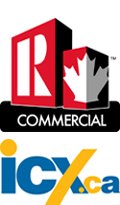CAP rate is short for “capitalization rate” and, in a real estate context, is a measure of return on investment at a particular moment in time. For example, if a piece of investment real estate was purchased for $1,200,000 and the annual net operating income was projected to be $108,000 in the first year of ownership, we would say that the cap rate is projected to be 9% in that first year for that investment. I say, ‘for that investment’, because no two pieces of real estate are exactly the same and two similar properties in the same market place might have very different cap rates.
Knowing how to use the cap rate as a means of comparison is really handy as a result. For example, let’s say you’re an investor and you really feel that a reasonable cap rate based on your risk tolerance is 9.5%. You and your REALTOR® would research all of the available properties that fit your investment criteria and, using the cap rate, you could filter out all those properties that don’t meet you threshold for investment. All properties with a cap rate lower than 9.5% would be discarded and only those with returns higher than you hurdle rate would be considered.
The cap rate is a good measuring stick to start your decision making process, but it shouldn’t be your only measure. Why? Because it’s just a snapshot in time. It only looks at first year income and disregards all other factors like: increases in rental amounts over the term of the leases, expected appreciation in market values, potential tax benefits, reduction in possible vacancy, increases in rent through renovations, additional income potential not seen on the income and expense statement, advantageous financing, etc.
While there are many successful investors who only use the cap rate in their analysis of the income generated by a property, more sophisticated investors might use additional analysis tools like: IRR, Cash on Cash Returns (or ROI), before and after tax analysis, etc.
Ask your Commercial REALTOR® for assistance in doing these kinds of analyses and you’ll be far better able to make the right buying decisions over time.
Read more...







